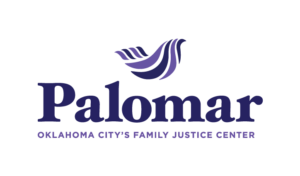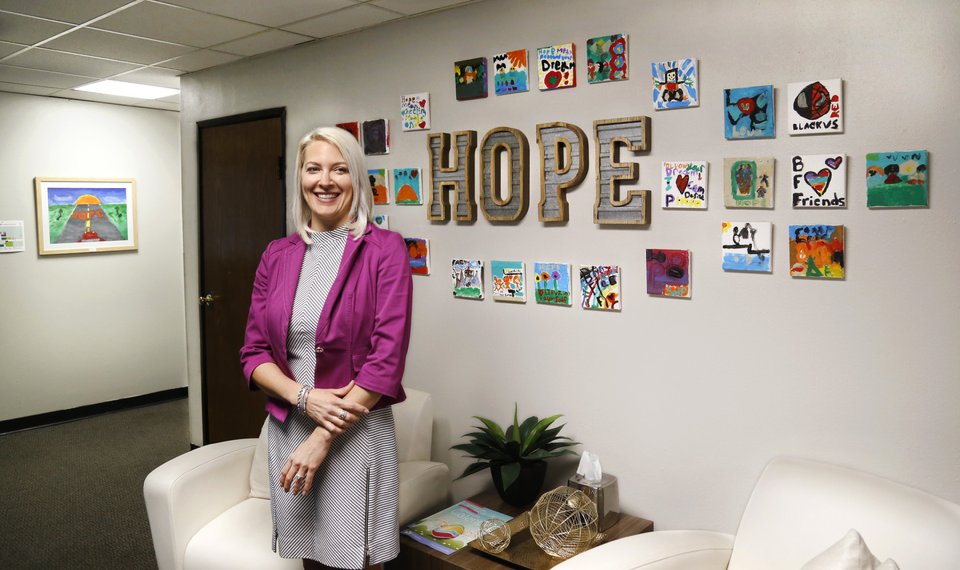Click here to read the story!
The Oklahoman’s Steve Lackmeyer fielded questions from readers Friday during his weekly OKC Central Live Chat. Steve was joined by Kim Garrett-Funk, executive director of Palomar, Oklahoma City’s family justice center. Palomar is set to receive $38 million to build a new, bigger home if voters on Dec. 10 approve the MAPS 4 ballot which would extend the current expiring Better Streets/Safer City sales tax for eight years.
Lackmeyer: Kim, thanks so much for joining us.
Garrett-Funk: Great to be here.
Lackmeyer: Tell us a bit about the history of Palomar.
Garrett-Funk: I worked at Oklahoma City Police Department victim services, and I saw families come in with injuries and trauma and their children. We had an array of pretty brochures. We said go here for medical, go here for forensic, go here for counseling. And we sent them all over the city for services and people were giving up and going back.
We had all these great agencies but they were sprinkled around the city.
Lackmeyer: I can imagine that many of these folks are moms with kids who by choosing to leave their abuser have very little for a fresh start, even lacking a car.
Garrett-Funk: When they leave, they often face poverty or homelessness even if they come from middle class families due to the financial abuse, restricting access to money. When they leave they can’t get it or it’s tied up in the courts.
We started to see the gaps. We researched various models. And we found the family justice center model that brings all the great agencies in the building.
Lackmeyer: When did it open?
Garrett-Funk: We started researching in 2015 and opened in 2017. In just little over 2 1/2 years we’ve had over 7,000 unduplicated clients, 34% of those were kids.
Lackmeyer: Who were your partners in getting it started?
Garrett-Funk: Oklahoma City police, Legal Aid, the attorney general’s office, the YWCA, and the Oklahoma County district attorney.
Lackmeyer: And I understand it was Bob Howard that provided a building at 1140 N Hudson at greatly reduced rent. And I’ve heard stories of the cleaning crew consisting of yourself, your husband Bob Funk Jr., Steve Hill (aide to the mayor), Trisha Everest, and former Gov. Frank Keating and former first lady Cathy Keating.
Garrett-Funk: This whole model is based on the “power of we.” The building was almost 19,000 square feet. We had 300 people come together to transform that space and make it as nice and comfortable as it could be for an 80-year-old building.
Lackmeyer: Tell us what you’re asking for with MAPS 4.
Garrett-Funk: The vision is a healing and restoration center, 80,000 square feet. We can expand partnerships. We see an education and training facility, a community space where survivors can come. We want medical and forensic units, faith based services, expand our animal services.
What is Palomar’s vision for the future of Oklahoma City?
Garrett-Funk: A safer community. Reducing violence. Interrupting generational cycles of violence. Holding offenders accountable.
Domestic violence doesn’t affect me. Why should I support Palomar and MAPS?
Garrett-Funk: For people who don’t think violence affects them, they’re not seeing the indirect costs. If you work at an agency and nobody comes to work and you have to pick it up, it’s impacting you. When insurance rates are increased, that follows people going to the emergency room and being unable to pay. And there is the impact on kids. I can assure you if your kid is being bullied at school, it’s by a kid in a violent home. If you’re on the road and hit by a person with road rage, you’re dealing with someone with violence issues.
Lackmeyer: Twice in the past five years I have sadly come to know of friends who came from great homes and great families. They were married, with kids, in the nicest of homes. They had the nicest life facades possible. But they getting the crap beat out of them and only after some serious threats to their lives did they get the courage to leave.
You know someone. I can pretty much guarantee it. But they don’t want you to know because society has put some sort of idiotic shame into being a victim.
Garrett-Funk: Domestic violence is an epidemic. You know multiple people impacted but because of shame and stigma, they often don’t tell.
What is something that will be added in the new facility that is most exciting to you?
Garrett-Funk: Community space for survivors. When somebody leaves, that’s not the end of the meeting for help and support. I love the idea of a space that can bring survivors together. I know survivors who were abused as children and are still struggling in their 50s. I would love a space where they can belong and find other people and find connection and healing.
Lackmeyer: I’m also aware Palomar tries to make this a space where the children are given comfort and some distraction from the crisis of the moment.
Garrett-Funk: The expansion will give us trauma informed day care. Right now, kids are staying up all night and witnessing violence and they’re going to schools or day cares and people don’t know how to respond to them.
The day care would be for kids 0 to 5, and my goal is to have after school care too, but where specially trained people can work with the kids.
Kim, where are you planning on building a new facility for Palomar if MAPS 4 is passed?
Garrett-Funk: We love being in Midtown. Our clients and partners love it. We have the opportunity to have donated land to stay in Midtown. Our clients feel safer going into a lively mixed-use neighborhood where they could just as easily be grabbing lunch, an ice cream or stopping for coffee. It destigmatizes the people and the location and the experience.
It makes me really proud to see a developing community embrace us.



